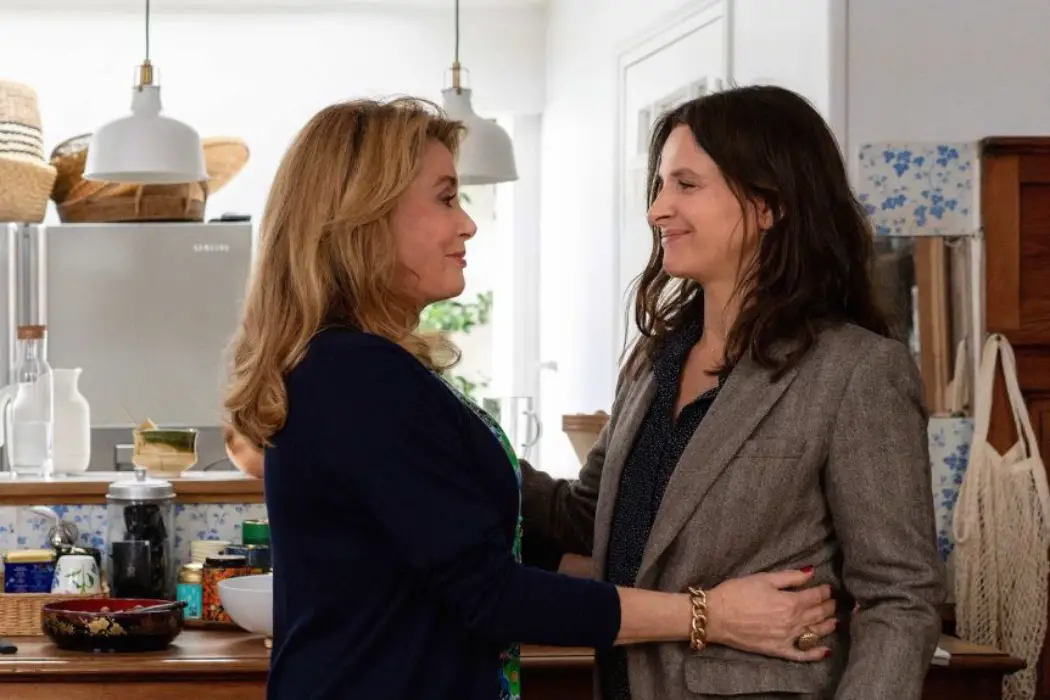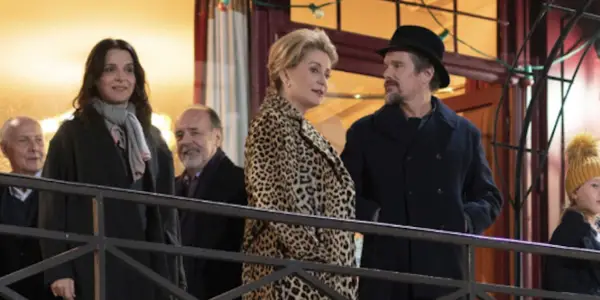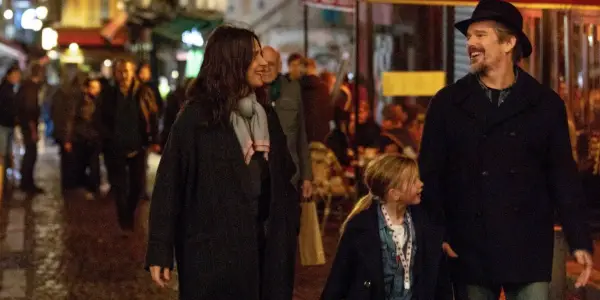THE TRUTH: You Can’t Trust Memory

Stephanie Archer is 39 year old film fanatic living in…
Family is a complicated facet to tackle. No two are alike, yet many can find relatable elements to smooth the troubles and bolster the joys. With the diversity of upbringing and family dynamics, there is never a drought on the angles of a story presented to audiences. The Truth, from writer and director Hirokazu Koreeda (Shoplifters), takes viewers on an intimate look into the relationship between mother and daughter – and how the relationship we may know, may not be as true as our memory would like us to believe.
The Truth is in the eye of the beholder
What is truth? For Fabienne Dangeville (Catherine Deneuve) it is the truth she chooses to remember. She remembers her successes and the films that would launch her career. She remembers the fond relationships with fellow actors and the intimate moments shared with her daughter. With her latest memoir set for release, fans around the world have the chance to read Fabienne’s truth, to have a chance to know her. But is the truth she documents in her book real?

As her daughter Lumir (Juliette Binoche) and her “little family” (Clémentine Grenier and Ethan Hawke), as Fabienne refers to them, arrive on her estate to celebrate the book’s release, and intimate portrait begins to form for audiences, not of the truth that Fabienne has crafted on the pages of her book, but rather the true relationship between mother and daughter. As Lumir challenges the lack of truth in Fabienne’s book, the fractures in their foundation begin to show, old wounds resurfaced and memories reevaluated.
Compounded by the filming of her latest film, with cinema’s new up and coming star Manon Lenoir (Manon Clavel), mother and daughter not only struggle to navigate the relationship between them but the ideas of loss, forgiveness, and truth.
Central Relationships
The Truth is not a film whose elements stand out above others, rather a film that displays the perfect blend of storytelling through the master craft of filmmaking. This is not a film about the composition, the set, or the wardrobe. This is at its core a story about the fractured relationship of a mother and her daughter, navigating the emotions and varying memories in an attempt to grow and forgive. Everything works to facilitate the richness of the relationship between them, crafting authenticity and relate-ability.

Catherine Deneuve and Juliette Binoche each deliver stand out performances, harnessing the innate purity of love between a mother and her child. While the cast around them is solid as well, they are grounding elements, further breathing life into the relationship at hand and providing the depth of layers to the central characters for examinations of the past, present, and future.
The Truth does not rush the relationship, nor its examination. An even-paced film, while at times dragging at the heels, The Truth takes its time drawing out the central conflict, slowly peeling away layers of “truth” to find the reality at the core of these two women. As in real life, this is not an element of growth and understanding that can happen in an instant or forcefully, only through careful and meticulous planning, allowing the truth to flow when the time is right.
What is real?
The Truth has a fitting title in that throughout the film’s entirety, characters and audience are charged with the responsibility of understanding what is true. But can you ever truly be sure? Can the memories of another person be anything other than a personal truth? Even if we experience the same events, can we ever truly accuse someone’s memories or perceptions as false?

The Truth tackles these questions beautifully, elegantly lacing it throughout interactions and revelations. As mother and daughter struggle to see eye-to-eye, a lack of understanding, and a need to have one’s perspective validated prevent them from growing together. Stunted by their own personal viewpoints, memories come into question leaving both to wonder if they ever truly had the right – or the entire – picture.
When speaking to my mother as an adult, especially in regards to memories in childhood, we both have found revelations and new wells of understanding towards the decisions that were made and the confusion we had caused one another. Watching both Fabienne and Lumir experience the same moments on-screen brought an authenticity of a film that felt all too personal – both for myself and now in the viewpoint, I had for its creator. There is a deep richness of understanding and a safe environment for the catharsis of The Truth to seep into the minds of audiences alike, presenting an experience that many will find they can relate with.
Conclusion: The Truth
The Truth is an impeccable and intimate view into the quietly tumultuous relationships between mothers and daughters and the shape they take into adulthood. It also questions what the truth really is in the perspective of each person. Can we each have our own personal truths, own perspectives, and still be right? Sometimes, we just need to see the whole picture.
Have you seen The Truth? What did you think? Let us know in the comments below!
The Truth will be released VOD on July 3, 2020.
Watch The Truth
Does content like this matter to you?
Become a Member and support film journalism. Unlock access to all of Film Inquiry`s great articles. Join a community of like-minded readers who are passionate about cinema - get access to our private members Network, give back to independent filmmakers, and more.













